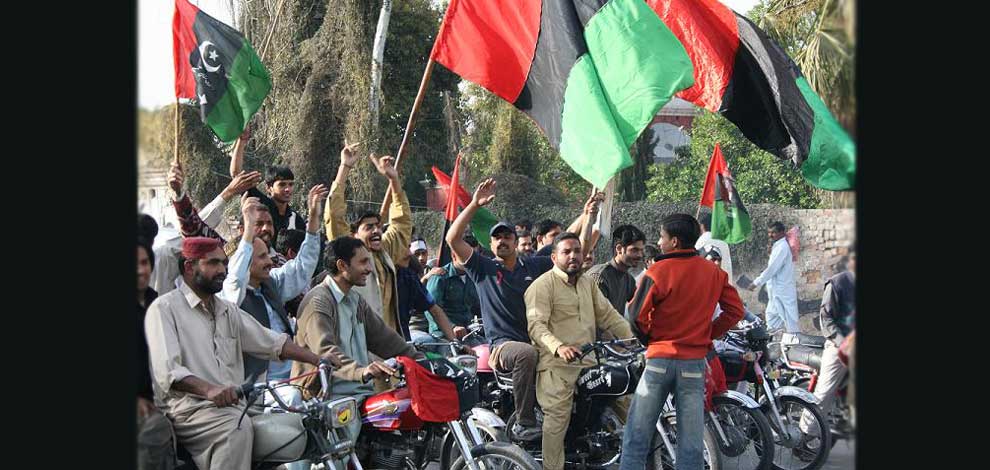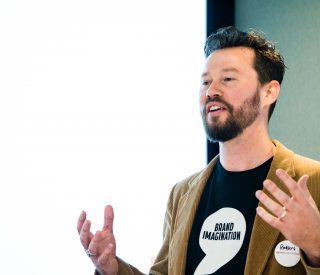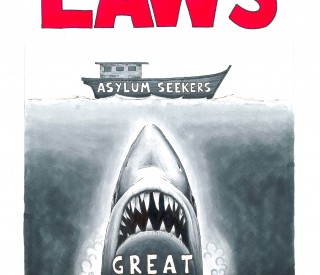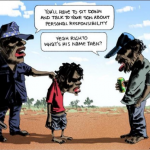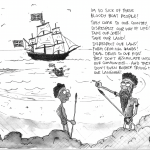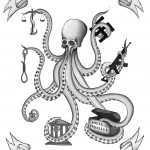My following piece was the lead story in today’s online edition of Eureka Street – it was then re-published in USA TODAY and the Epoch Times, a leading Independent News Organisation with offices in 30 countries across five continents and published in 17 languages.
RAWALPINDI, Pakistan – In the waking hours of Monday morning I watched intently as the Zardari Government was bought soberly to its knees. Intense political pressure had forced Prime Minister Gilani to reinstate Chief Justice Chaudhry through an executive order.
The lead up to such a move came as Nawaz Sharif, leader of the Pakistan Muslim League-Nawaz (PML-N) and his brother Shahbaz Sharif, Chief Minister of the Punjab, were simultaneously dismissed from office by the Supreme Court on February 25, effectively barring them both from holding public office.
As I walked through Rawalpindi the day after Sharif’s dismissal, I came face to face with groups of young men roaming the streets, breaking shop fronts and destroying public property. The hotel I was planning on staying in was attacked and had its front windows smashed in, groups of men on motorbikes, waving flags and brandishing sticks sped along the roads shouting political slogans as they whizzed by. “Welcome to Pakistan” I thought to myself.
In the weeks that followed Pakistan was plunged further into political instability, with an increase in civil disobedience, the uprise of anti government rallies and the threat of a political coup. The Long March intensified and steadily aimed its sights for the heart of Islamabad. A city that was in total lockdown.
Defying his house arrest, Nawaz Sharif broke through several police barricades and led the Long March into the streets of Lahore.
Violent clashes began between protestors and baton wielding riot police, who, under strict orders to stop the march at all costs, began shelling crowds with tear gas. But it didn’t stop there as reports of a journalist who was run over on his motorbike by police caused a massive backlash and protestors immediately turned on the authorities, setting an armoured police bus ablaze, incinerating it completely.
Arrest warrants were also issued for Imran Khan and Shahbaz Sharif, but they both successfully evaded capture and made it safely to Rawalpindi, where they tentatively remained in hiding until the news of the Chief Justice Chaudhry’s reinstatement was broadcast. Dozens of other political figures were also arrested and detained during the lead up to the march to Islamabad.
The streets of Rawalpindi were now relatively empty, an eerie feeling in a usually bustling city. Shipping containers and large trucks blocked off every major road to and from the city, but after slipping past several police check points unnoticed and entering the centre of town I noticed that the city had not come to a complete standstill; large groups of men once again roamed the streets, only this time they were patiently waiting for the call to action. A call that has now been answered by the current government.
The Pakistani establishment has seemingly been split into two camps: Zardari and Sharif.
Zardari, whose popularity as president is plummeting, represents the US backed Pakistan, a country that is content ruling and being ruled as it is. Sharif on the other hand is backed by the Pakistani elite, a movement and group of people who are questioning the status quo, who are sick seeing their money disappear as bribes for feudal lords, ministers and police, sick of a country riddled with corruption and incompetent people in positions of power and who largely want Pakistan to grow and prosper.
Of course it reeks of having capitalist motives and Sharif is no saint when it comes to corruption allegations, but it is a grassroots democratic movement based loosely around the principles of Western democracy and if implemented could do wonders for the country.
Sharif has been fighting to reinstate Chief Justice Chaudhry, who, before his suspension by Musharref in 2007 opened up the “missing persons” case and began to dig into the dark recesses of the government’s dealings with its secret agencies. As a consequence, the US was implicated in hundreds of cases of people (mainly all innocent) who had disappeared due to US led interrogation techniques in the fight to curb the war on terror.
Chaudhry is considered as a politically dangerous man to a lot of people, so the thought of him now being reinstated and having the power of an independent judiciary will send a definite shiver down the spines of the spineless.
Where Pakistan will go from here is anyone’s guess, but as tremors quake throughout the political landscape it may be a good time to till the soil and sow new seeds.

